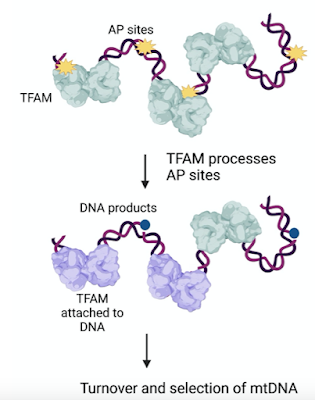A postdoctoral position is available in the Systems Toxicology Branch in the Division of the National Toxicology Program (DTT) at the National Institute of Environmental Health Sciences (NIEHS), Research Triangle Park, North Carolina. Please note that the position is in an office-based scientific environment. This position is for a discipline-specific fellowship in the field of genetic toxicology that will be applicable to careers in regulatory science and industrial toxicology. The fellow will gain understanding of key genetic toxicity testing approaches that have Organization for Economic Cooperation and Development (OECD) test guidelines as well as genetic toxicity testing batteries. The fellow will also gain experience with genetic toxicity assays that provide information on the mode-of-action or mechanism-of-action of genotoxicants, such as error-corrected next generation sequencing and multiplexed biomarker assays.
The genetic toxicity testing program at the DTT offers a wide range of opportunities for fellow involvement. A suite of activities with defined products (manuscripts, contributions to DTT Technical Reports and Toxicity Reports, reviews, etc.) can be tailored based on the fellow’s interests, skills, and career goals. Furthermore, the fellow will participate in the design and interpretation of appropriate in vivo and in vitro genetic toxicology studies, which are aligned to DTT strategic scientific priorities and primarily conducted at an external contract research organization (CRO). Emphasis will be placed on understanding the study workflow from design through execution to analysis and reporting.The fellow will have extensive interaction with divisional staff in scientific disciplines such as chemistry, pathology, genetic toxicology, toxicokinetics, toxicogenomics, informatics, statistics, and molecular biology. The curriculum will also include a number of specific experiences (such as CRO site visits and interaction with external stakeholders in the regulatory sciences at other government agencies) that fellows are expected to undertake during their tenure as well as specifically tailored experiences based on the fellow’s identified career interest, if applicable.
The successful applicant will have formal training or experience in one or more areas of: toxicology, genetic toxicology, cellular and molecular biology, biotechnology, DNA replication, DNA damage response, DNA repair, mechanisms of genome maintenance, mutagenesis, carcinogenesis, genomic techniques (e.g., DNA sequencing) and related bioinformatics analyses, in silico methods for prediction of genotoxicity, methods of in vivo to in vitro extrapolation (IVIVE). The successful applicant will also have excellent writing and oral communication skills and will demonstrate a clear interest in working in a highly matrixed, team science environment....
Eligibility: To be eligible for a postdoctoral training fellowship at the DTT, applicants may not possess more than five years of postdoctoral experience and must hold a Ph.D. or equivalent in toxicology or an allied science (e.g., cellular and molecular biology, biochemistry, genomics, bioinformatics, biotechnology, or closely related discipline), M.D., D.V.M., or other equivalent professional degree. All applicants receive consideration without regard to race, religion, color, national origin, gender, sex, sexual orientation, physical or mental disability, political affiliation, age (with statutory exceptions), or any other non-merit factor.
How to Apply: Applications should be submitted by the closing date (see below) and include:
• Curriculum vitae.
• A one-page cover letter in which the applicant describes their background, how their doctoral training has prepared them for a fellowship, and what they hope to achieve if accepted into the program.
• Names and contact information for three references.
Applications should be submitted at: Please submit your application to Dr. Stephanie Smith-Roe via email by October 6, 2023. stephanie.smith-roe@nih.gov


